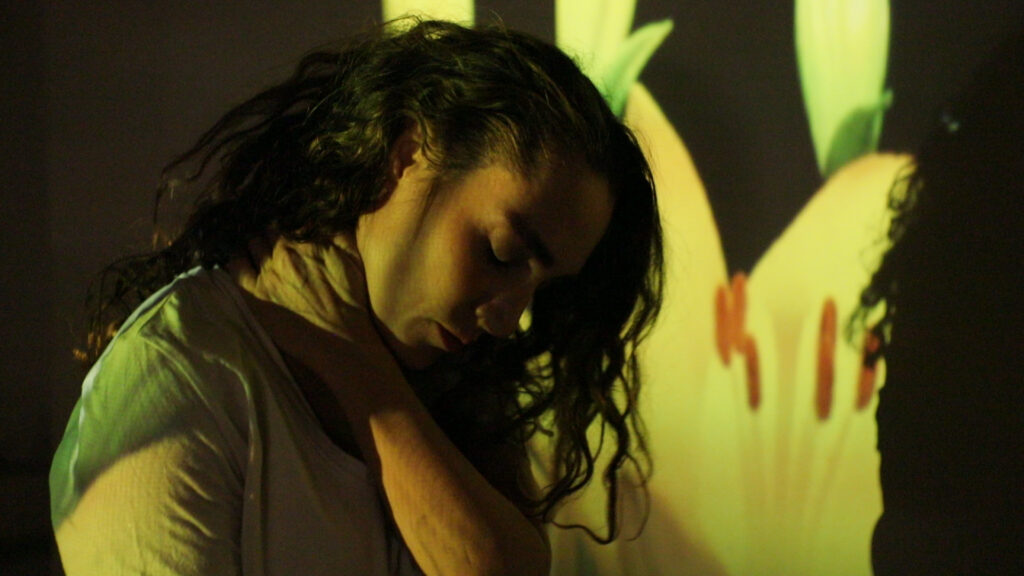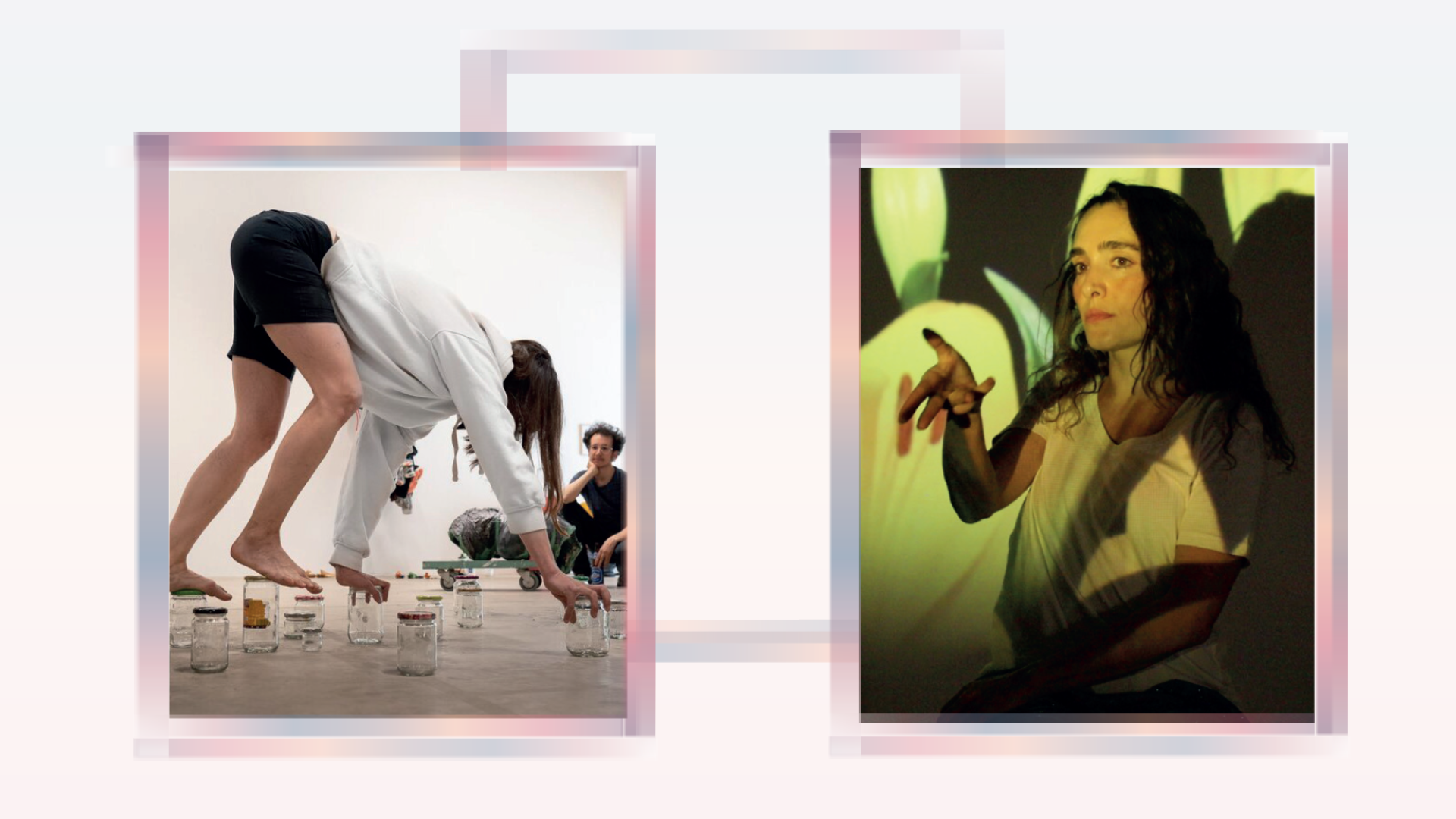
Double Bill: Possibilities – Shirin Farshbaf / Ameretat: A Practice of Redemption – Mitra ZiaeiKia
Possibilities – Shirin Farshbaf (IRN)

Starting from the poem Possibilities by the polish poet and essayist Wislawa Szymborska (winner of Nobel prize of literature in 1996) as a departure point, the artist Shirin Farshbaf delayers and recontextualizes the meaning as appropriate to our life experiences and relevant to the contemporary world. This process will question our preferences and choices and allow them to be reflected within improvisation scores; giving structures to be manipulated and played with.
If you cannot choose, does it matter what you prefer?
Does preferring give you freedom? Or is it an illusion of having limited choices?
When I say I choose something, I invite you to enter a larger realm of existence.
I cannot choose something that is not given or said.
I cannot choose something out of the thing I haven’t mentioned before or somehow out of the listeners’ imaginations. But I can still prefer them.
Because when I talk about choosing, it sounds like I have power to choose to do or not to do, but when I talk about preferences, I have more power to go beyond choices.
What do I exclude by preferring something over something else?
However, talking about preferences can be intimate and personal.
I want to talk about them with someone who is willing and open to listen,
someone who I value.
I want to see how I can recall the intuitive.
I prefer not to talk!
The concept of preferences is a topic that we deal with daily in order to create a life closest to our ideal world. Struggling with the concept of making choices and having preferences in our everyday life is inevitable. We might choose many things that are not our preferences. To collect all our preferences, we need to have power, and power can be defined as money, time, positions, and properties.
Possibilities by Wisława Szymborska
I prefer movies.
I prefer cats.
I prefer the oaks along the Warta.
I prefer Dickens to Dostoyevsky.
I prefer myself liking people
to myself loving mankind.
I prefer keeping a needle and thread on hand, just in case.
I prefer the color green.
I prefer not to maintain
that reason is to blame for everything.
I prefer exceptions.
I prefer to leave early.
I prefer talking to doctors about something else.
I prefer the old fine-lined illustrations.
I prefer the absurdity of writing poems
to the absurdity of not writing poems.
I prefer, where love’s concerned, nonspecific anniversaries
that can be celebrated every day.
I prefer moralists
who promise me nothing.
I prefer cunning kindness to the over-trustful kind.
I prefer the earth in civvies.
I prefer conquered to conquering countries.
I prefer having some reservations.
I prefer the hell of chaos to the hell of order.
I prefer Grimms’ fairy tales to the newspapers’ front pages.
I prefer leaves without flowers to flowers without leaves.
I prefer dogs with uncropped tails.
I prefer light eyes, since mine are dark.
I prefer desk drawers.
I prefer many things that I haven’t mentioned here
to many things I’ve also left unsaid.
I prefer zeroes on the loose
to those lined up behind a cipher.
I prefer the time of insects to the time of stars.
I prefer to knock on wood.
I prefer not to ask how much longer and when.
I prefer keeping in mind even the possibility
that existence has its own reason for being.
From “Nothing Twice”, 1997
Translated by S. Baranczak & C. Cavanagh
Copyright © Wisława Szymborska, S. Baranczak & C. Cavanagh
Credits
| All rights reserved | Shrin Farshbaf |
| Poem by | Wisława Szymborska |
Video
Ameretat: A Practice of Redemption – Mitra ZiaeiKia (IRN)

Ameretat – a practice of redemption is a collective remembrance of dying and undying; a strategy for sustaining our existence; to recall our monsters in the modes of sphinx, super-humans, avatars, cyborgs. This performance is inspired by the Zoroastrian divine concept of “not dying” and invites the audience to follow the transformative journey of the mythical avatar Ameretat.
Ameretat is one of seven Amesha Spentas (archangels) in Zoroastrianism. Being the divine personification of immortality, Ameretat gives people a long life on earth and eternal life hereafter. What if birth is not a beginning; death is not an ending; existence is limitless, and its continuation does not have a start? Is the desire for immortality the secret to our survival?
This performance embodies the vulnerable and resilient, death and immortality, in an always shifting transformation manifesting itself through movement. A path of transformation is always filled with obstacles. We suffer, we are in pain, we exhaust ourselves, we almost disappear but we continue our eternal journey when leaving our body behind. Is it our endurance and persistence that make it so difficult for us as human beings to acknowledge our own mortality? As an iteration, an ongoing repetitive process, this performance aims to challenge the limits of our existence; a memorial of our singing and rising.
Since dying will not await.
Credits
| Composer: | Kambiz Ziaeekia |
| Visual: | Mehrdad Motejalli |
| Light Designer: | Ali Kouzehgar |
| Director and Performer | Mitra ZiaieKia |
